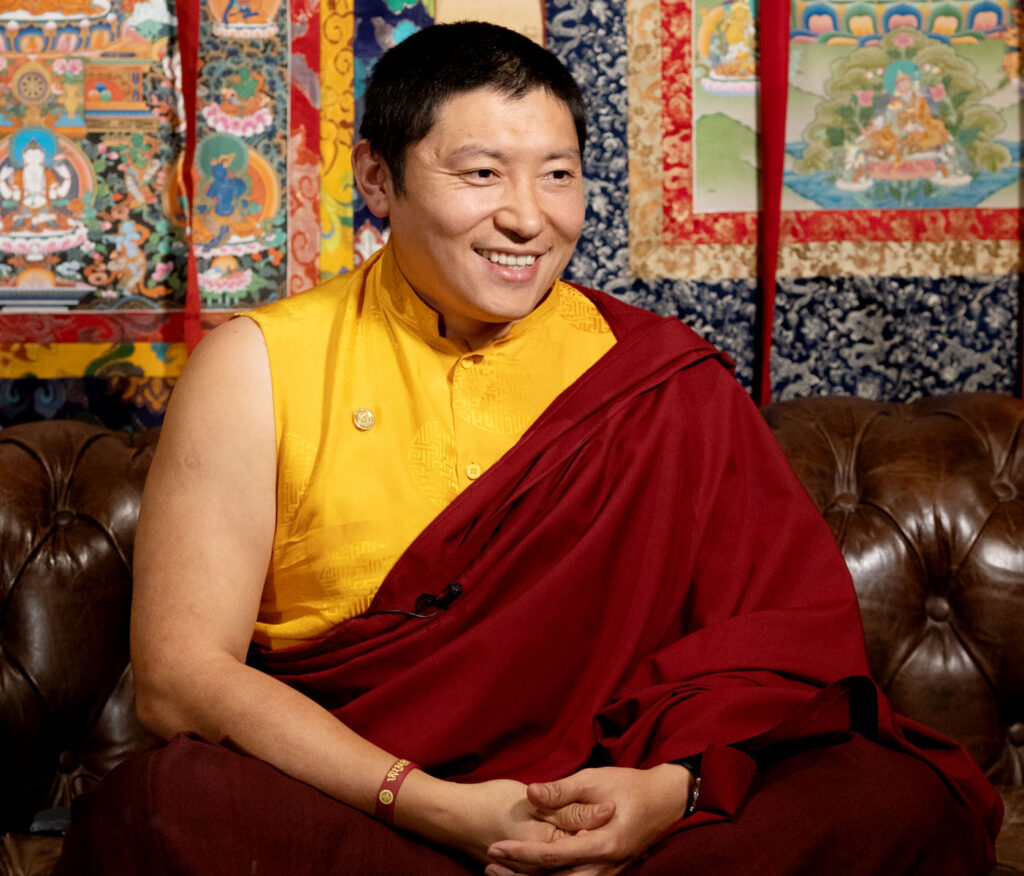Dear friends near and far
These days we often mistake what it’s meant to be a dharma practitioner. The heart of the buddhadharma is to tame one’s own mind, so a dharma practitioner is someone who is able to do this, who can see their own faults, address them, and tame and transform their minds. Someone who is unable to do this is not a dharma practitioner. Secondly, a dharma practitioner should be sincere and honest. So if you wish to practice the buddhadharma authentically this you need these qualities.
In terms of our motivation for practice, we need to have compassion and our compassion should have four qualities.
To generate compassion means to see sentient beings’ suffering and the causes of their suffering and to wish to free them from it. You also need to be able to see your own suffering and its causes, to see and experience this directly for yourself. If you can, it will not be difficult to generate compassion for others. Likewise, if you can understand that you have been connected to all sentient beings from beginningless time until now as parents and children that will make generating compassion easier, and will also help you to have more equanimity.
You need to contemplate compassion in this way and when you see someone else suffering put yourself in their shoes and try to imagine what it would be like to be going through what they are going through. If you can put yourself in their position and really understand their suffering, you’ll develop some compassion. Having developed this initial compassion then you need to improve it. Don’t leave compassion as a mere thought; apply it in your behaviour and actions. When you do this you will be able to see whether your compassion is genuine or not, whether it is pure, strong, and constant or not. This is the first quality our compassion should have: application.
Since compassion is the wish to free oneself and others from suffering and its causes the second quality our compassion needs to have is dignity. Dignity here means you see and acknowledge your suffering and the suffering of others, and you have the confidence that you can dispel it and its causes, that you have the means and methods to do that. Where does this dignity arise from? It arises from genuine practice of the dharma. It is through practice that you will develop this confidence that you can bring about change. And therefore, someone who has this dignity is a practitioner. Someone who lacks this dignity, who lacks the confidence that they can change, is not a practitioner.
The third quality is aspiration, the sincere and heart-felt aspiration to benefit other beings. We need to have this genuine aspiration and wish.
But it’s not enough to leave it there, as an aspiration. To make our compassion pure, we need wisdom, prajna.
So to reiterate, whatever we do we should do it with compassion – we need to apply compassion in all of our actions. Secondly, our compassion needs to be accompanied by dignity, a confidence that we can change. Thirdly we need aspiration and fourthly wisdom. If our compassion has these four qualities, it will be pure, genuine, and strong.
Since, as you all know, we need to develop this kind of genuine compassion then while thinking of you all on this Guru Rinpoche Day I am sharing these few points on compassion with you. But in addition to generating compassion ourselves we also need to teach our family and friends about compassion, to talk about it calmly and nicely with them while continuing to practice it ourselves.
With constant aspirations for you all.
Sarva Mangalam,

Phakchok Rinpoche






Responses